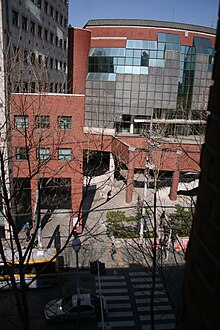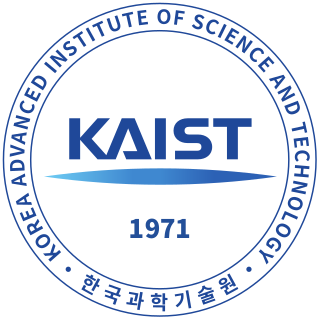
The Korea Advanced Institute of Science and Technology (KAIST) is a national research university located in Daedeok Innopolis, Daejeon, South Korea. KAIST was established by the Korean government in 1971 as the nation's first public, research-oriented science and engineering institution. KAIST is considered to be one of the most prestigious universities in the nation. KAIST has been internationally accredited in business education, and hosts the Secretariat of the Association of Asia-Pacific Business Schools (AAPBS). KAIST has 10,504 full-time students and 1,342 faculty researchers and had a total budget of US$765 million in 2013, of which US$459 million was from research contracts.
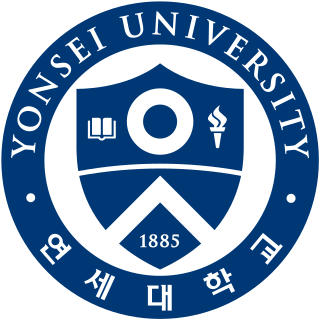
Yonsei University is a private Christian university in Seoul, South Korea. It is part of the SKY universities.

The Catholic University of Korea (Korean: 가톨릭대학교) is a private Roman Catholic university in Bucheon, Gyeonggi Province, South Korea. It was established in 1855. The Catholic University of Korea operates campuses in Seoul and in the neighboring Bucheon. The university's school of medicine operates eight affiliated hospitals throughout the country.
Dong-Eui University (Korean: 동의대학교) is a private university in Busan, a metropolitan city on the southeastern coast of South Korea. The university has 10 colleges, 116 master and doctoral courses in six graduate schools, with 22,992 students and 1,690 faculty and staff members. Dong-Eui is known for its medicine and engineering departments. It also has a reputation for management, health sciences, nursing, and a range of sciences.

Korea University is a private university in Seoul, South Korea. Established in 1905, the university was named after Goguryeo. The university is one of the SKY universities.
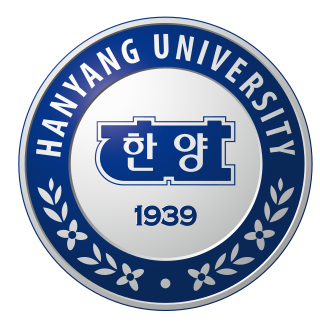
Hanyang University is a private research university in Seoul and Ansan, South Korea. Hanyang derives from the former name of the capital Seoul used during the Joseon Dynasty. The university was founded in 1939 as an engineering school, and was the country's first college to offer engineering and architecture programs.

Hongik University is a private university in Seoul, South Korea. Founded by an activist in 1946, the university is located in Mapo-gu district of central Seoul, South Korea with a second campus(branch campus) in Sejong.

Kookmin University is a private research university established in 1946 in Seongbuk-gu, Seoul, South Korea. It has historic significance, as it was founded during by the Provisional Government of the Republic of Korea and is the first private university founded after the liberation of the Republic of Korea from Japan.

Osaka Institute of Technology, abbreviated as Dai kōdai (大工大), Han kōdai (阪工大), or Osaka kōdai (大阪工大) is a private university in Osaka Prefecture, Japan. OIT has 3 campuses, Omiya campus located in Asahi-ku, Osaka City, Umeda campus located in Kita-ku, Osaka City and Hirakata campus located in Hirakata City.

Myongji University is a private, Christian university founded in 1948 in South Korea. It provides higher education in the fields of engineering, sciences and humanities. It has two campuses: the Social Science Campus is located in Seoul and the Natural Science Campus is in Yongin which is 35 kilometres (22 mi) south of the capital. It consists of 10 colleges, 42 departments, seven faculties and eight specialized postgraduate programs.
The 2001 Korean FA Cup, known as the 2001 Seoul Bank FA Cup, was the sixth edition of the Korean FA Cup.

Incheon National University (INU), previously also known as University of Incheon (UI), is a national university in Incheon, Seoul, South Korea.

The University of Science and Technology is a group of public research institutions in Seoul, Suwon, Changwon, Ansan, Seongnam and Daejeon, etc, in South Korea. UST is the leading government-funded research university dedicated to the synergistic effects of research and education in Science and Technology. The UST was established in 2003 by the Ministry of Science, ICT and Future Planning as the nation’s graduate school specializing in science and engineering education and research. The UST runs only a graduate school. Creating the new driving force for growth would play a major role in leading national growth in the new century. The South Korean government established the UST to produce professionals in the field of combined technologies, thought of as one of the most important criteria for creating the driving force for South Korea's national growth. Today, UST continues to develop itself into a major research university.

Manuela Maria Veloso is the Head of J.P. Morgan AI Research & Herbert A. Simon University Professor Emeritus in the School of Computer Science at Carnegie Mellon University, where she was previously Head of the Machine Learning Department. She served as president of Association for the Advancement of Artificial Intelligence (AAAI) until 2014, and the co-founder and a Past President of the RoboCup Federation. She is a fellow of AAAI, Institute of Electrical and Electronics Engineers (IEEE), American Association for the Advancement of Science (AAAS), and Association for Computing Machinery (ACM). She is an international expert in artificial intelligence and robotics.

Queens Technical High School is a public career and technical education secondary school located in Long Island City, NY. The school has an enrollment of 1,400 students and serves grades 9-12. A new wing, completed in 2005, added a cafeteria, library, gymnasium, and additional classrooms. The following career and technical programs are available to students: Electrical Design and Installation, Plumbing Design and Technology, Pre-Engineering Electronic Technology, Computer Technology and Information Systems, Cisco networking, Cosmetology Careers/Salon Management, Barbering, and Graphic Design. The school is operated by the New York City Department of Education.

Sejong University is a private university located in Seoul, South Korea known for its standing in hospitality and tourism management, dancing, animation and rhythmic gymnastics. Founded as the Kyung Sung Humanities Institute, it was renamed in 1978 to its present name in honor of Sejong the Great, the fourth king of the Joseon Dynasty and overseer of the creation of the Korean alphabet Hangul.

Seoul National University of Science and Technology is a national university located in Nowon-gu, Seoul, South Korea.
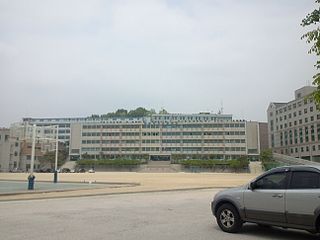
Kwangwoon Electronic Technical High School is a public technical, all-male high school located in Nowon-gu, a district in the northeastern area of Seoul, South Korea. It is a three-year training school with approximately 1,100 students and a teaching staff of about 100.

Shamsipour Technical and Vocational College is one of the higher education centers in Tehran, Iran. Before the 1979 revolution, it was being called "Tehran Institute of Technology", which changed to "[Martyr] Shamsipour Technical University " after Hossein Ali Shamsipour.
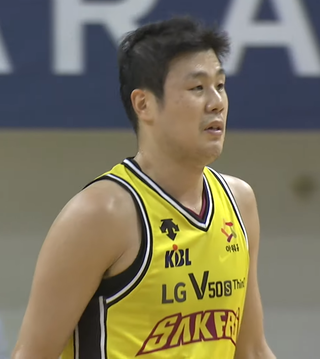
Cho Sung-min is a South Korean retired professional basketball player. He played for Busan KT Sonicboom and Changwon LG Sakers in the Korean Basketball League and was a member of the South Korean national team.


